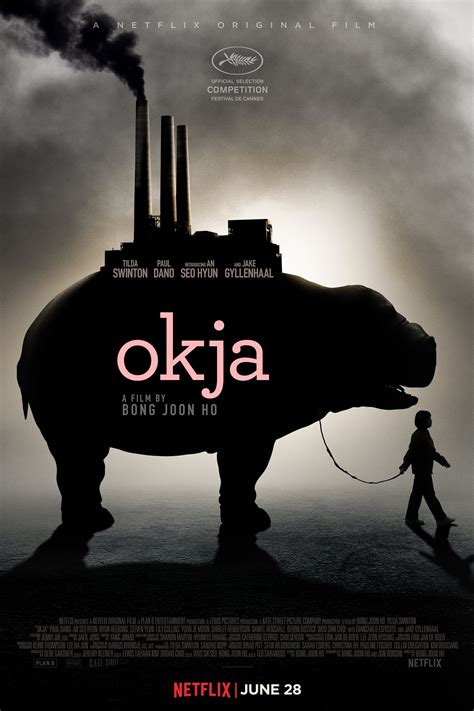Okja

Description:
A young girl risks everything to prevent a powerful multinational company from kidnapping her best friend - a massive animal named Okja.Keywords:
Corporate Greed, Animal Friendship, Environmentalism, Genetic Engineering, Animal Rights, Cultural Encounter, Eco FableIs Okja about veganism?
"Okja," directed by Bong Joon-ho, is not exclusively about veganism, but it addresses themes related to animal rights, industrial farming, and the ethics of consuming meat. The film follows a young girl named Mija who tries to save her genetically modified super pig, Okja, from a powerful corporation. It critiques the exploitation of animals and raises awareness about the impact of the meat industry on both animals and the environment, encouraging viewers to reflect on their food choices and the treatment of animals.
What is the main message of Okja?
The main message of "Okja" revolves around the ethical treatment of animals and the impact of corporate greed on both the environment and human relationships. It critiques the industrial food system, highlighting the exploitation of animals for profit while emphasizing the bond between humans and animals. The film advocates for compassion and awareness, urging viewers to consider the consequences of their dietary choices and the moral implications of treating sentient beings as mere commodities. Ultimately, it calls for empathy and responsibility in the face of exploitation.
Is Okja based on a true story?
"Okja" is not based on a true story, but it is a fictional tale that addresses real issues related to animal agriculture, corporate greed, and environmentalism. Directed by Bong Joon-ho, the film follows a young girl named Mija who tries to save her genetically modified super pig, Okja, from a multinational corporation. While the story and characters are fictional, it draws inspiration from real-world practices in the meat industry and raises awareness about animal rights and ethical consumption.
What happens to Okja in the end?
In the film "Okja," the titular super pig is ultimately saved from being slaughtered by Mija, her young owner. After a tense confrontation, Mija manages to expose the cruelty of the meat industry, leading to a public outcry. Okja is spared from death, and instead of being killed for food, she is returned to her home in the mountains. The film ends on an ambiguous note, highlighting ongoing issues in animal rights and the food industry, leaving viewers to reflect on the future of such creatures.
Explore More Categories:
Supernatural Truth Seeking Bigfoot First Love Crime Investigation Dreamlike Identity Transformation Discovery Detective Sibling Rivalry Sisterhood Mobsters Racism Defection Quirky Humor Exploration Australian Outback Existential Existential Dread Rivalry Retirement Italian Cinema Subculture India Genetic Engineering